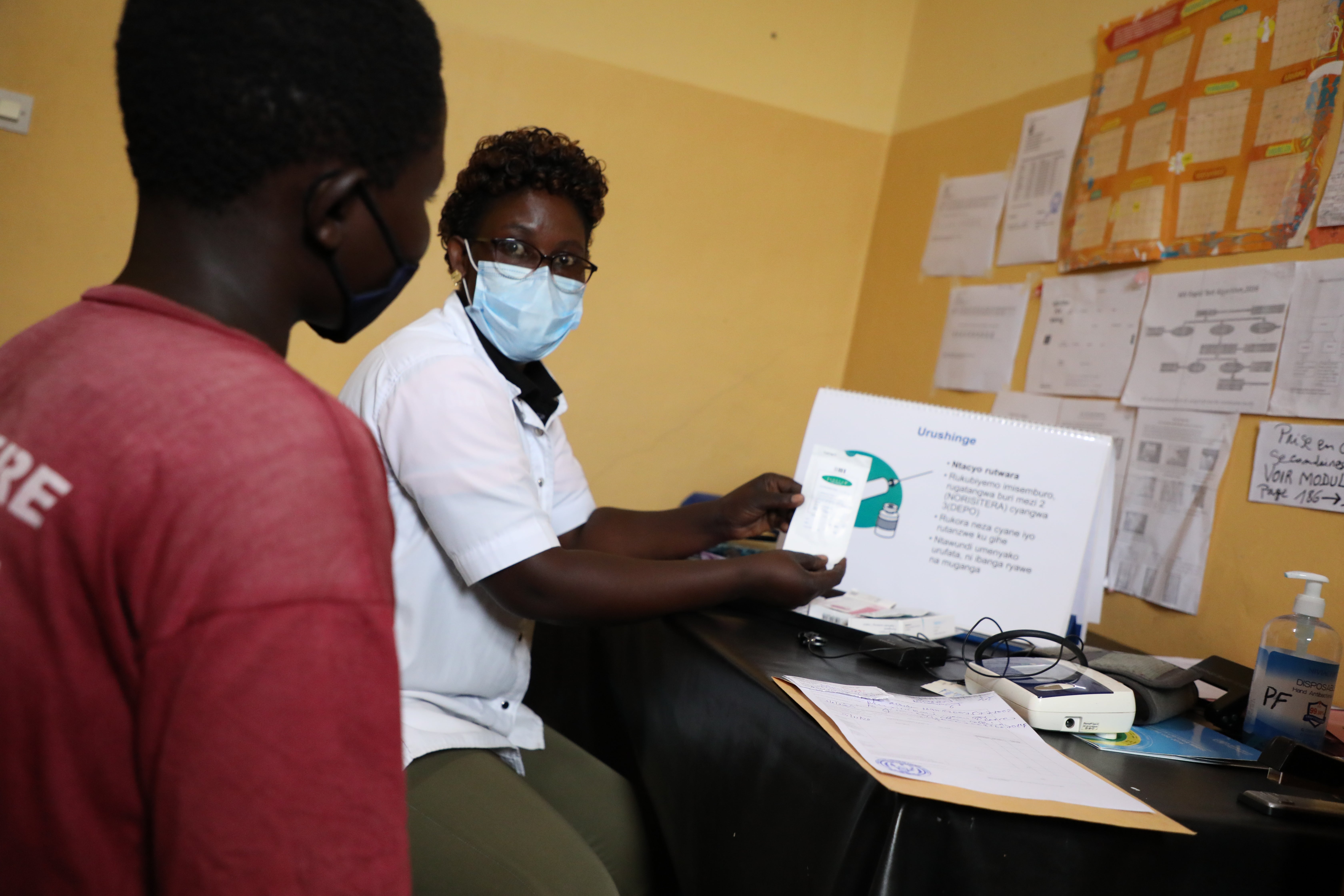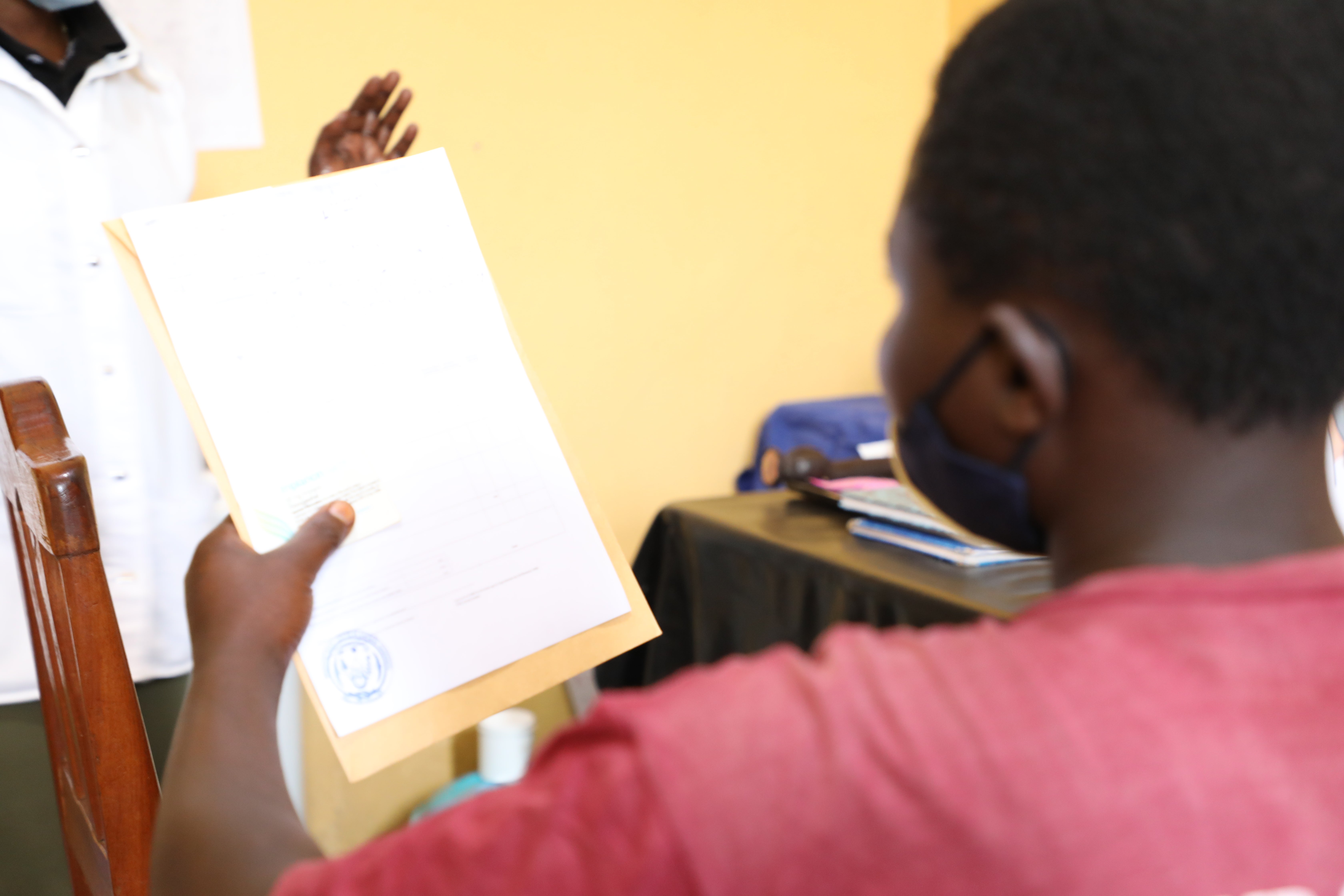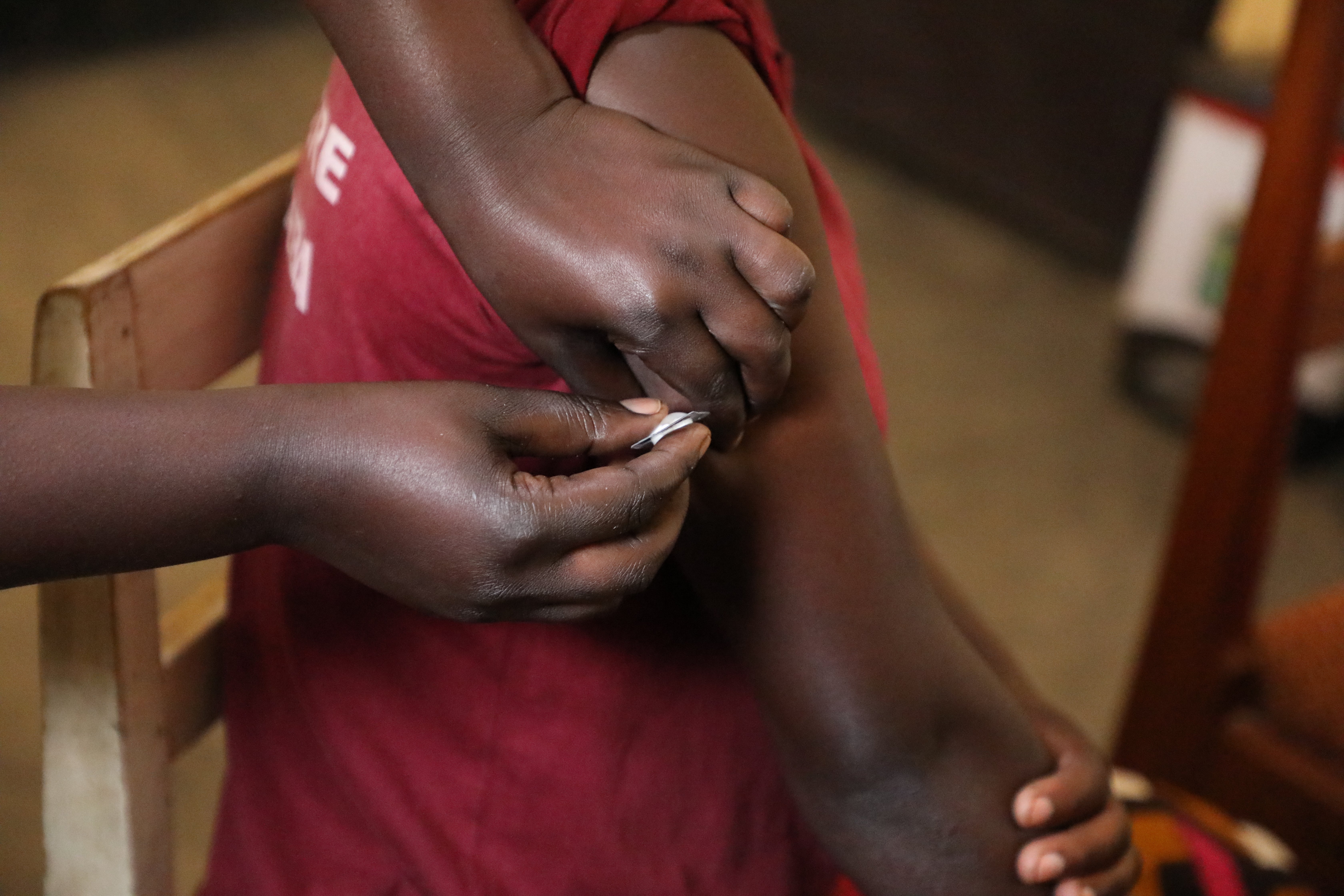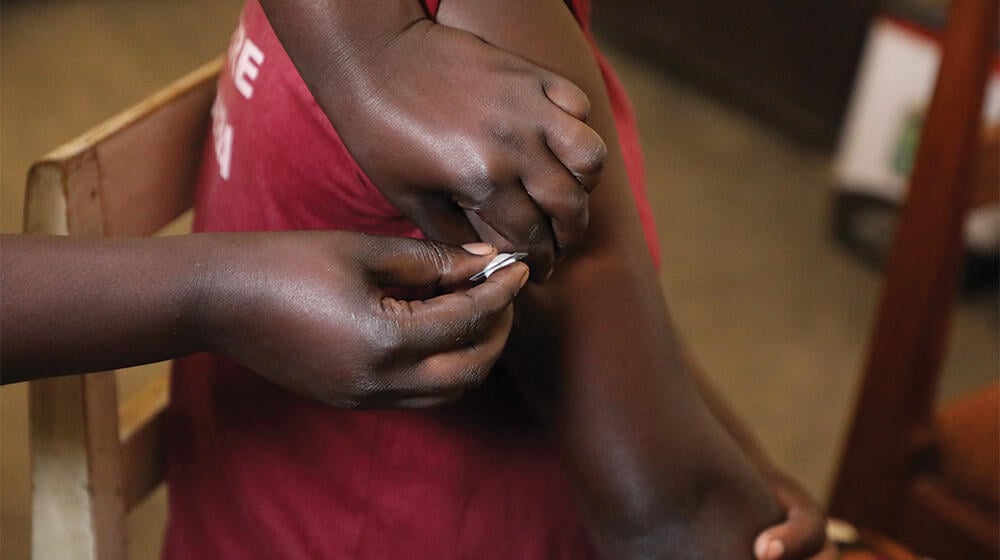Expanding the contraceptive method mix is one of the key high impact interventions that can boost the contraceptive rate and it is one among Rwanda's International Conference on Population and Development25 commitments and Family Planning 2030 priorities.
With the support from UNFPA and other partners, the Ministry of Health/ Rwanda Biomedical Center introduced new methods namely Sayana Press and Hormonal IUD in all the 30 Districts of Rwanda, including Nyamasheke, where Ms. Nyiraneza Chanceline, a young mother of a three year old boy, lives.
Nyiraneza got pregnant at 17 years old, when she was still in high school. From then, her life changed. She immediately dropped out of school, her boyfriend abandoned her and she was no longer supported by her family. Prior to that she had never heard about Family Planning.
“Before I got pregnant, I did not know anything about Family Planning. I came to know family planning methods and their benefits, through the Antenatal care program at Karengera Health Center where I gave birth.” Said Nyiraneza.

Nyiraneza Chanceline and her nurse at Karengera Health Center discussing on different Family planning methods before decided the method of her choice
Quality counseling makes an impact! Having access to family planning information and services improved Nyiraneza’s life after giving birth. She regained hope for the future and confidence in herself.
“I immediately decided to go with an implant method for three years. It is a decision I confidently made, thanks to the information I got from the health center. My Life has now improved economically and socially, because even though I did not go back to school, I managed to look for alternative work for economic empowerment, to be able to take care of my child” She said

After completing the 3 years of using implanon, Nyiraneza returned to the Karengera Health Center where she was introduced to the new methods and decided to go with Sayana press method
After completing the 3 years of using implanon, which is one of the modern methods of contraceptives, Nyiraneza returned to the Health Center where she was introduced to the new methods.
“After 3 years I decided to continue with family planning. The nurse informed me on the new methods. I immediately made a choice to adopt the Sayana Press method, because it is easier to use.” She said before adding:
“After being trained on how to do self-injection of Sayana, I will be able to do it myself at home without going to the health center, and my privacy will be ensured.” Nyiraneza narrates with a smile on her face

The self-injection of Sayana will give Nyiraneza the opportunity to do it herself at home without going to the health center, and her privacy will be ensured
According to Nyiraneza, , the new family planning method will help her raise her son well, have autonomy over her body and plan well for her life and future relationships.
“I feel comfortable. I can now plan for my life and for the future of my family. I know I will raise my son, feed him and buy him clothes, without any problem, because I work hard with no worries of having another baby that I did not plan for.” Said Nyiraneza
The Family Planning Goals make an estimate of 6.1%-point growth of the FP uptake, if the key high-impact interventions (the scaling up of Postpartum Family Planning (PPFP), the community-based provision of Family Planning and introduction of new methods) are fully implemented. This would push modern contraceptive use from 58.4% to 64.5%.
UNFPA will continue collaborating with the government of Rwanda in ensuring the supply of modern contraceptives and other reproductive health commodities in order to deliver the three zero transformative results and get to zero unmet needs in family planning towards achieving the SDGs.


